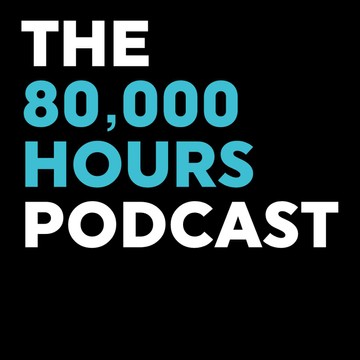
Kevin Esvelt
Speaker on people who want to bring down civilization and the scariest pandemic scenarios.
Top 5 podcasts with Kevin Esvelt
Ranked by the Snipd community

144 snips
Jul 15, 2025 • 4h 27min
Rebuilding after apocalypse: What 13 experts say about bouncing back
In this thought-provoking discussion, guests include Dave Denkenberger, who focuses on resilient food systems after catastrophes, and Zach Weinersmith, who talks about the practical needs of humanity in space. Kevin Esvelt warns of existential threats, while Lewis Dartnell describes how to rediscover essential knowledge post-collapse. Toby Ord and Mark Lynas delve into risks from climate change and potential civilizational collapse. Annie Jacobsen shares insights on catastrophic scenarios, including firestorms and nuclear threats, as Andy Weber highlights defense perspectives on nuclear winter.

75 snips
Oct 2, 2023 • 3h 4min
#164 – Kevin Esvelt on cults that want to kill everyone, stealth vs wildfire pandemics, and how he felt inventing gene drives
In this conversation, Kevin Esvelt, a biologist at MIT Media Lab and inventor of CRISPR-based gene drive, explores alarming bioweapon threats and the nuances of engineered pandemics. He stresses the risks posed by stealth viruses that go unnoticed until it's too late. The potential benefits and ethical dilemmas of using gene drives for disease control are also highlighted. Esvelt discusses technological solutions like UVC light for infection prevention and the vital need for robust biosecurity as we advance in synthetic biology.

48 snips
Jul 18, 2024 • 33min
Decoding Our DNA: How AI Supercharges Medical Breakthroughs and Biological Threats with Kevin Esvelt
Biologist Kevin Esvelt discusses AI's impact on biological research, highlighting benefits in medicine and public health while addressing concerns of biosecurity threats. The conversation delves into the power of AI in predicting protein activities, designing disease prevention tools, and the urgent need for tighter regulations in genetic research to mitigate risks of creating dangerous viruses.

20 snips
Aug 13, 2022 • 0sec
#51 – Kevin Esvelt and Jonas Sandbrink on Risks from Biological Research
A full writeup of this episode is available on our website: hearthisidea.com/episodes/esvelt-sandbrink.
Kevin Esvelt is an assistant professor at the MIT Media Lab, where he is director of the Sculpting Evolution group, which invents new ways to study and influence the evolution of ecosystems. He helped found the SecureDNA Project and the Nucleic Acid Observatory, both of which we discuss in the episode. Esvelt is also known for proposing the idea of using CRISPR to implement gene drives.
Jonas Sandbrink is a researcher and DPhil student at the Future of Humanity Institute. He is a fellow at both the Emerging Leaders in Biosecurity Initiative at the Johns Hopkins Center for Health Security, and with the Ending Bioweapons Program at the Council on Strategic Risks. Jonas’ research interests include the dual-use potential of life sciences research and biotechnology, as well as fast response countermeasures like vaccine platforms.
We discuss:
The concepts of differential technological development, dual-use research, transfer risks in research, 'information loops', and responsible access to biological data
Strengthening norms against risky biological research, such as novel virus identification and gain of function research
Connection-based warning systems and metagenomic sequencing technology
Advanced PPE, Far-UVC sterilisation technology, and other countermeasures against pandemics potentially worse than Covid
Analogies between progress in biotechnology and the early history of nuclear weapons
How to use your career to work on these problems — even if you don’t have a background in biology.
You can read more about the topics we cover in this episode's write-up: hearthisidea.com/episodes/farmer.
If you have any feedback, you can get a free book for filling out our new feedback form. You can also get in touch through our website or on Twitter. Consider leaving us a review wherever you're listening to this — it's the best free way to support the show. Thanks for listening!

15 snips
Nov 30, 2021 • 1h 8min
Dangerous biological research - is it worth it? (Kevin Esvelt)
Kevin Esvelt, a scientist at MIT, argues that research intended to prevent pandemics is actually putting us in a lot more danger. Also discussed: Kevin's own research on engineering wild animal species. Are the risks worth the benefits?


